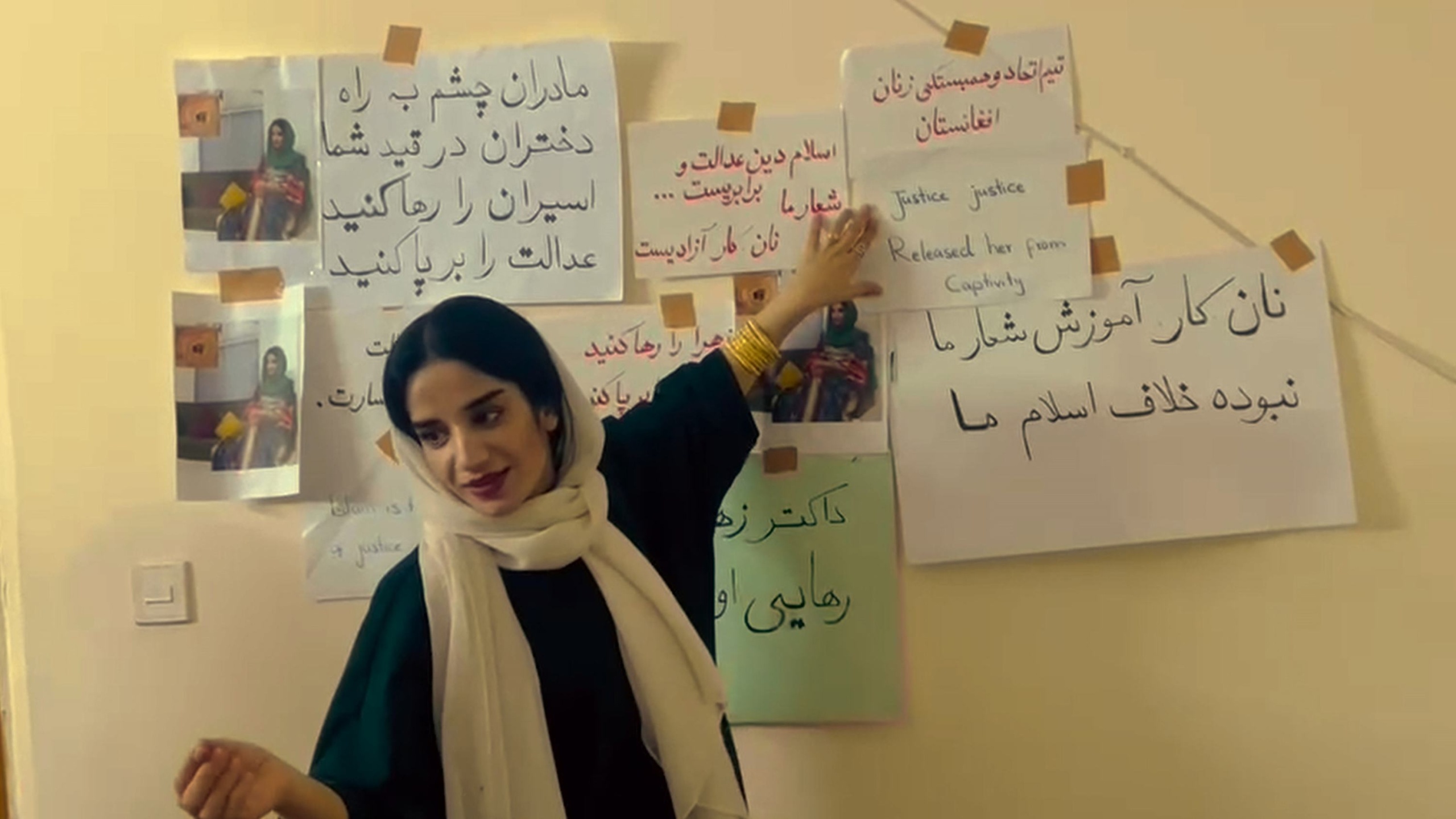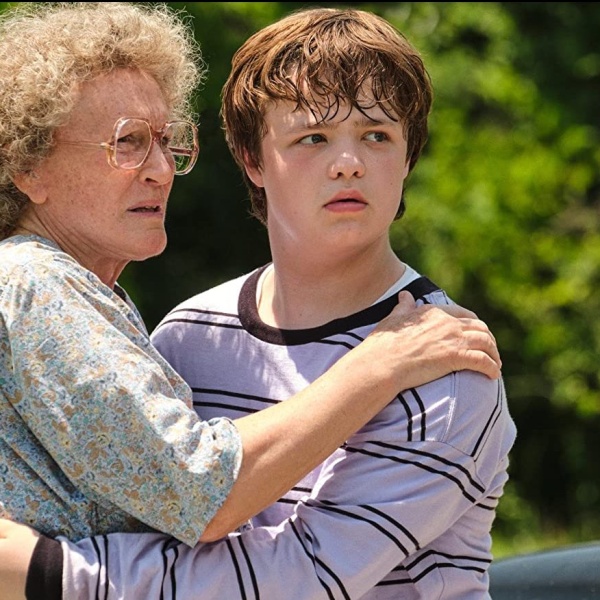“Bread & Roses” begins with a celebration. A beautiful, intimate moment of new beginnings between a newly engaged couple and their families. Then, chaos strikes. In the middle of the night, their world is turned upside down as gunfire blasts, signaling the arrival of the Taliban. But as bullets fly, communities take to their balconies, shouting, “Down with the Taliban!,” signaling that — no matter the force brought upon them — they are free Afghanis and will remain so.
At that moment in time, and when this footage was first captured via personal digital camcorder, it was easy to act in defiance. For years, the Afghan people had been emboldened to do so by American forces and their presence within the country to push against Taliban insurgency. But when these troops pulled out after 20 years due to deals signed by now President-Elect Trump during his first term in office and carried out by President Biden near the start of his, the Taliban seized on the opportunity in force. It took a little over three months for the Taliban to take control of the levers of power in Afghanistan, ousting the governing body in place since 2004.
The documentary “Bread & Roses” steps in at this transition moment, in which all the work heretofore done to expand women’s rights in Afghanistan over the last 20 years was suddenly thrown into turmoil. Using the same playbook as they used back then, Afghanistan slowly rolled back hard-earned freedoms, starting with separating the universities by gender and eventually working to keep all girls above sixth grade from receiving further education. They mandated a dress code for women. They barred them from parks and gyms. Eventually, all female nongovernmental workers were forced to stop working — then, government workers as well.
Featured in the documentary are a dentist named Zahra and government employee Sharifa. Zahra is one half of the young couple celebrating at the top of the film, but even her relationship must stand second to her liberation. She turns her former dental practice into a meeting ground for the revolution but still performs procedures when necessity calls. While Zahra’s journey is one of an emboldened spirit constantly tested, Sharifa’s is one of a lost soul yearning for a new horizon. She knows her potential is wasted inside the house. She often escapes to her roof to remind herself of the outside world waiting for her.
The third thread in producer/director Sahra Mahni’s inside exploration follows Taranom, an activist part of the hoard fleeing Kabul circa the Taliban’s invasion. She eventually makes it out of Afghanistan, much to her distress, and into Pakistan where she’s forced to lay low in a safe house alongside fellow refugees. At a certain point, even this location becomes no longer viable, and she’s forced to pick up and go with no money in her pocket and no idea where to head next.
Though her story carries an active tension, in the film doesn’t do enough to show us the activism Taranom has spent most of her life participating in. Throughout “Bread & Roses,” capturing the moment tends to carry more value than offering full context on each individual, but rarely does it hold us back from forming some kind of connection with them. These three characters, as well as one additional cameraperson, captured this footage via cell phones and camcorders, then passed on this work to Mahni to be pieced together. “Bread & Roses” conveys an eerie intimacy, but there’s also a separation between the viewer and subject matter that undercuts the film’s overall message.
But the urgency of “Bread & Roses” shouldn’t go unmentioned. These women knew they needed to document this moment, wasting no time in doing so, and taking whatever means necessary to show the repercussions of radicalism. Clearly, executive producer Malala Yousafzai and producers Jennifer Lawrence and Justine Ciarrochi saw the need for this footage to be seen as soon as possible. Responding to what the Taliban was doing to women in Afghanistan, they joined the movie at the same time as abortion rights were being overturned in America.
At one point in “Bread & Roses,” during a meeting between mostly female revolutionaries, one participant rallies the crowd, pushing against the notion that “the Taliban is a truth you should tolerate” as many would want them to believe. In hearing this, I was struck by the sentiment’s relevance to how American media outlets and individuals cope with the forthcoming presidential transition, now without the energy to fight and instead resigned to the latest brand of fascism. What is even more distressing is that, within the documentary’s context, this moment comes early in a battle still very much waging.
In fact, by the close of “Bread & Roses,” these women, in many ways, are worse off than how they began the film — and since forced to endure abduction, torture, and a solitude they’d never known. It’s a shocking reality that brings the entire vision into focus, made even bolder by showing the lengths these women go to to fight back, whether through protest or continuing to educate young girls despite mandates not to. “Bread & Roses” is a warning and one that is perhaps too late to heed. Perhaps the imperative — and all we can do — is to follow the example of these women by acting up rather than accepting the so-called “law and order” thrust upon us.
Unfortunately, even Zahra, Sharifa, and Taranom could not live under these conditions and, as relayed through a post-script at the end, were forced to relocate outside of Afghanistan. What comes through most by the time “Bread & Roses” wraps up is that our responsibility now is not to ourselves, but to future generations, to ready them to face down their aggressors instead of merely accepting their will.
Grade: B
“Bread & Roses” is now streaming on Apple TV+.
Want to stay up to date on IndieWire’s film reviews and critical thoughts? Subscribe here to our newly launched newsletter, In Review by David Ehrlich, in which our Chief Film Critic and Head Reviews Editor rounds up the best new reviews and streaming picks along with some exclusive musings — all only available to subscribers.







